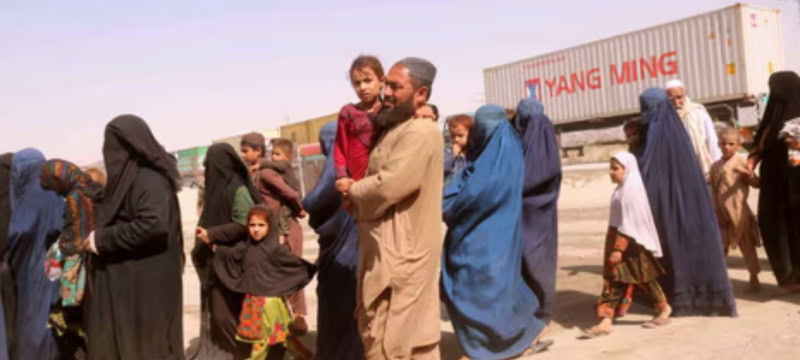Pakistan has opted to extend the stay of Afghan refugees holding Proof of Registration (POR) cards for another year, following a cabinet meeting chaired by Prime Minister Shehbaz on Wednesday.
The federal cabinet approved the extension for 1.45 million Afghan refugees legally residing in Pakistan, whose POR cards had expired last month. This extension grants them legal status until June 30th of the following year.
Read more: Pakistan And Afghan Taliban Met In Doha To Discuss Bilateral And Regional Relations
The decision follows discussions with United Nations High Commissioner for Refugees (UNHCR) Filippo Grandi, who met with Pakistani officials including Prime Minister Shehbaz. The UNHCR commended Pakistan’s suspension of the “Illegal Foreigners Repatriation Plan” and stressed the importance of timely POR card extensions, crucial identity documents for over 1.3 million Afghan refugees.
Prime Minister Shehbaz highlighted Pakistan’s significant burden in hosting a large Afghan refugee population, urging the international community to acknowledge and share this responsibility collectively.
Pakistan currently hosts around 3 million Afghan refugees, with the UNHCR emphasizing the need for comprehensive solutions, including voluntary repatriation, third-country resettlement, and longer-term options within Pakistan.
Last year, Pakistan initiated efforts to repatriate undocumented foreigners, including Afghans, resulting in the return of over 500,000 Afghans according to UN reports.
Amid heightened security concerns, the caretaker government initiated the repatriation of illegal refugees, deporting more than 500,000 undocumented Afghans.
In today’s meeting, the federal cabinet also approved plans to abolish the Pakistan Public Works Department (Pak PWD) and establish the Pakistan Infrastructure Development Company to oversee federal projects. Additionally, the cabinet decided to create the Asset and Facility Management Company for maintenance works, transitioning federal projects to provincial departments.
These decisions aim to streamline government operations and enhance efficiency across health, education, and infrastructure development sectors, underscoring Pakistan’s commitment to managing its refugee population responsibly while addressing internal governance and developmental challenges.





